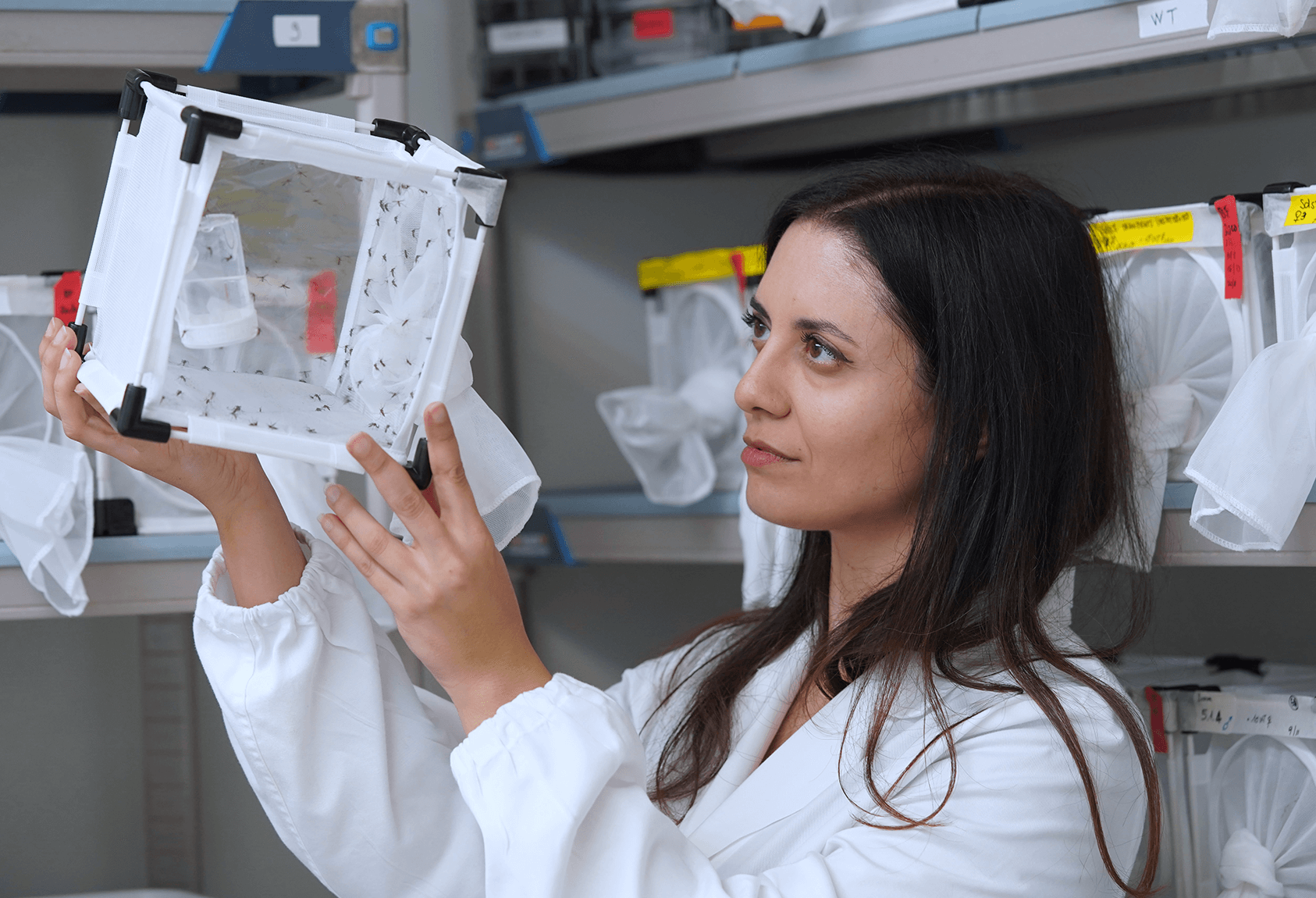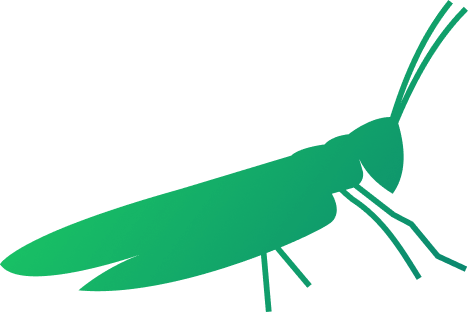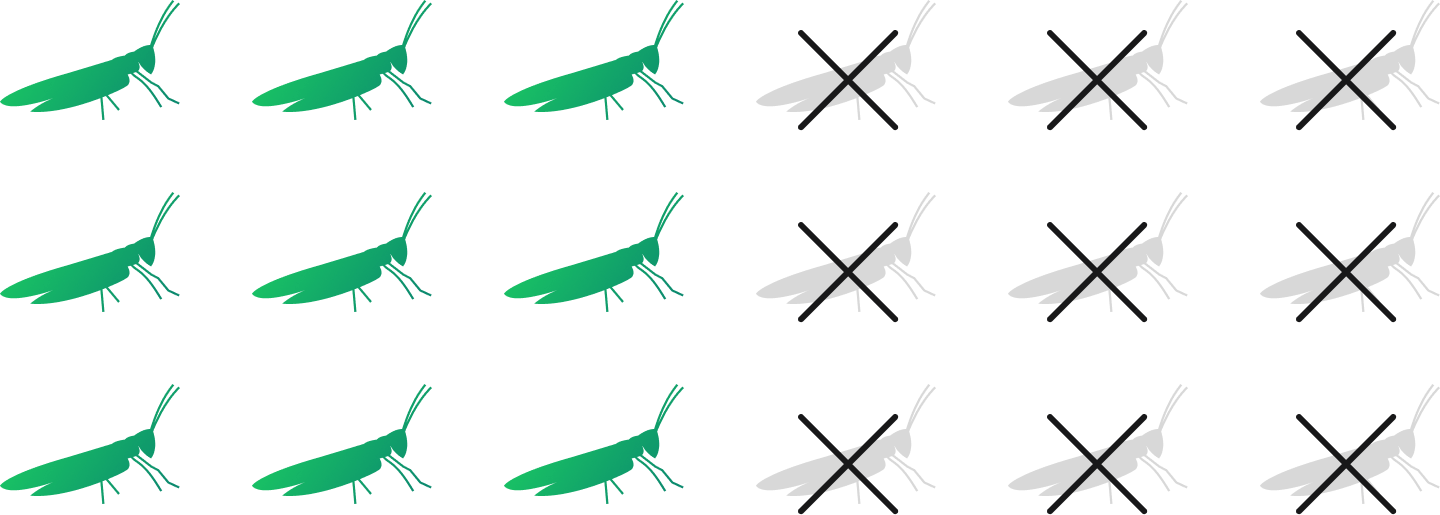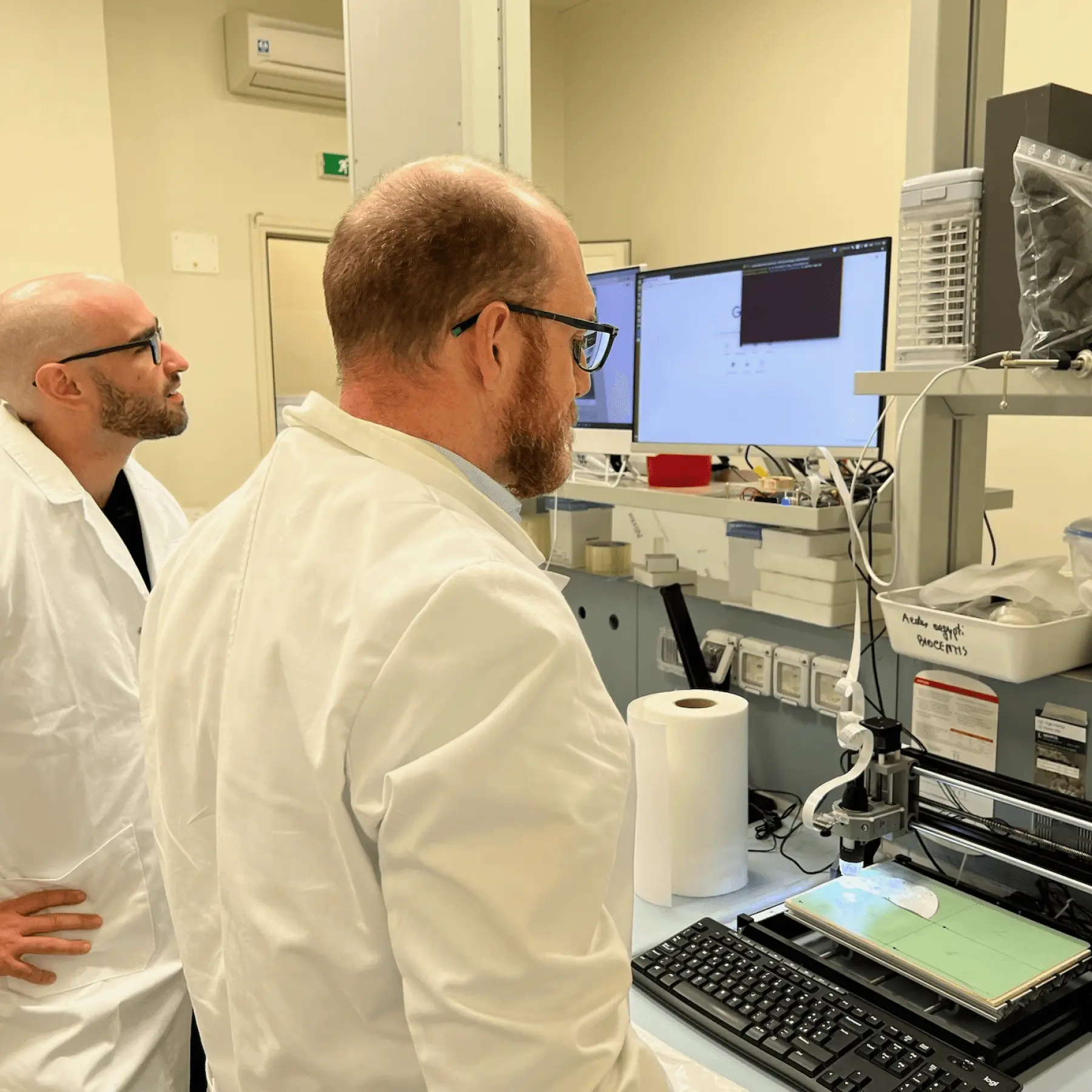“Biocentis was founded to bring about a paradigm shift in the way we control harmful insects. We are developing groundbreaking solutions with unparalleled efficacy, all while ensuring environmental sustainability and affordability.”
Our technology is based on the release of insects of the target species that can reduce the size of the wild population by introducing via mating genetic traits associated with reduced fertility. These traits are self-limiting, meaning they only persist for a limited number of insect generations before disappearing from the environment.








“Biocentis was founded to bring about a paradigm shift in the way we control harmful insects. We are developing groundbreaking solutions with unparalleled efficacy, all while ensuring environmental sustainability and affordability.”


Our solutions are species specific, leaving beneficial insects unharmed and preserving the environment and human health.
The self-limiting traits that we introduce fade over time, providing a reversible solution that can be used over specific areas of land.
Thanks to its multigenerational effects, our technology offers highly effective localized control at a fraction of the cost of alternatives.
We employ proprietary methods to ensure that our insects can be effectively reared and delivered at scale.
We target the most fundamental elements of the insect genome. Because of this, we can adapt it to control various insect vectors and pests.
Our technology works regardless of insecticide resistance and can help prevent the traits from spreading so that insecticides remain effective.
At Biocentis, we embrace the transformative potential of artificial intelligence.
Our team develops AI-driven digital twins that simulate how biological systems perform in real-world environments, accelerating development and helping decision-makers anticipate emerging insect-borne risks.
When biology meets computation, new possibilities emerge.
